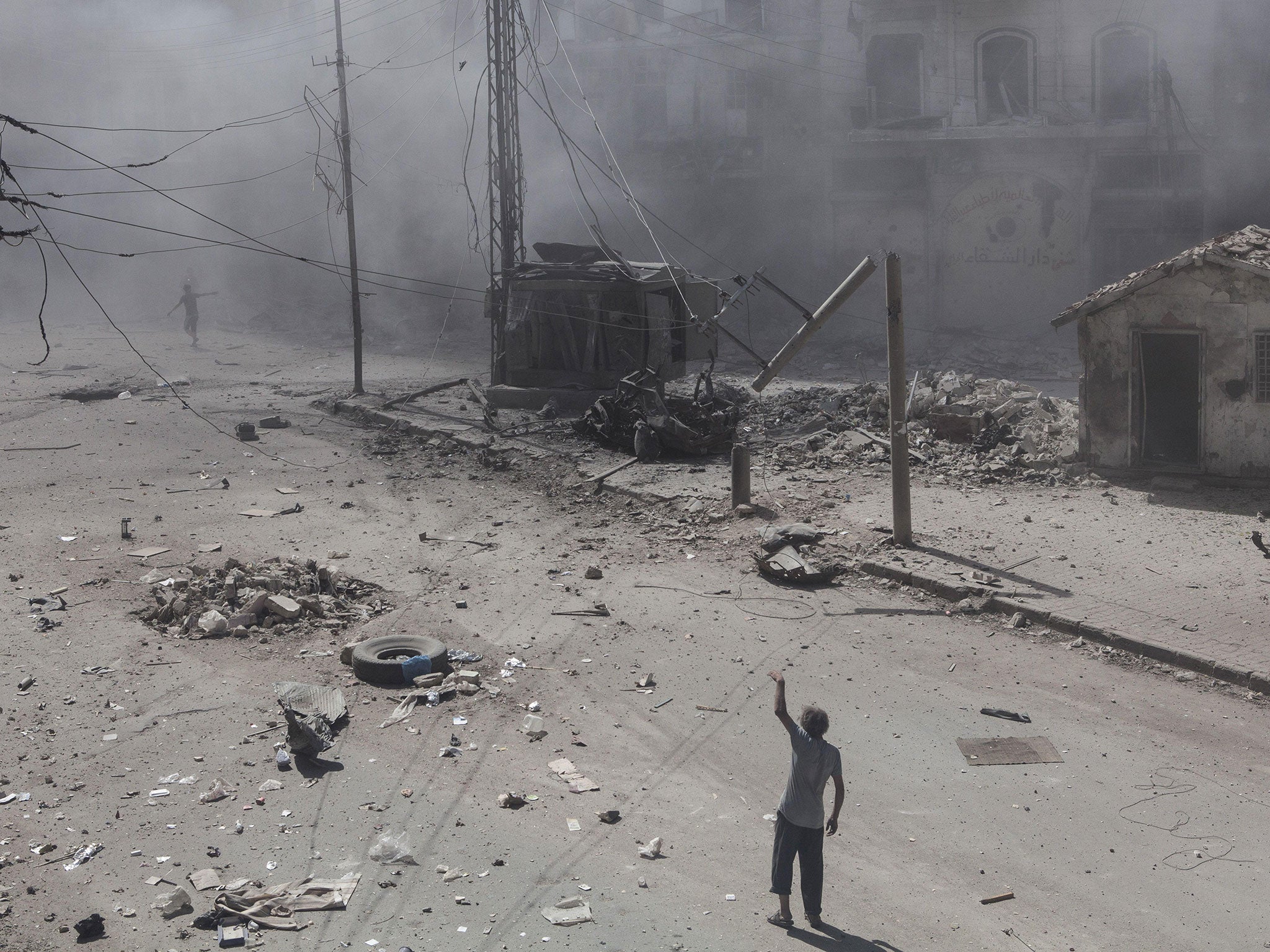Islamic State: Air strikes on Isis in Syria could be illegal

Your support helps us to tell the story
From reproductive rights to climate change to Big Tech, The Independent is on the ground when the story is developing. Whether it's investigating the financials of Elon Musk's pro-Trump PAC or producing our latest documentary, 'The A Word', which shines a light on the American women fighting for reproductive rights, we know how important it is to parse out the facts from the messaging.
At such a critical moment in US history, we need reporters on the ground. Your donation allows us to keep sending journalists to speak to both sides of the story.
The Independent is trusted by Americans across the entire political spectrum. And unlike many other quality news outlets, we choose not to lock Americans out of our reporting and analysis with paywalls. We believe quality journalism should be available to everyone, paid for by those who can afford it.
Your support makes all the difference.David Cameron has been warned that UK air strikes against Isis in Syria could be illegal under international law.
Officials in the House of Commons Library have cast doubt on the Prime Minister’s view that Isis targets could be bombed in Syria as well as Iraq on the grounds that the Assad regime in Syria is “illegitimate.”
In a briefing paper for MPs, officials said: “Action in Syria will be difficult to justify legally without a request for assistance from the Assad government, and it is unlikely that the West could be seen to be responding to such a request.
“The British Government has said that any action in Syria will comply with international law, and the most likely way to achieve this would be to claim that military action is for humanitarian purposes, using the Responsibility to Protect doctrine. This remains controversial, however, without a United Nations Security Council resolution to authorise it.”
Barack Obama is expected to chair a security council session to discuss Isis during the UN general assembly in New York next week. Although the US President and Mr Cameron will use the meeting to lobby other UN members to join an international coalition against Isis, a vote on military action is unlikely to be taken. Russia, an ally of Syria, could veto air strikes in Syria.
Pressure is mounting from Conservative MPs for the Government to commit to air strikes, but an announcement is unlikely until after the UN session. Mr Cameron could recall Parliament at the end of next week to seek its endorsement of air strikes. Whips in the three main parties believe a majority of MPs would support bombing in Iraq but are unsure about securing backing for action in Syria.
Syria warned that action without the cooperation of its government would be a “big mistake” and a “big crime”. Faisal Mekdad, the deputy foreign minister, said: "Those who would like to fight terrorism cannot fight terrorism in Syria or in Iraq without coordinated actions with both governments and without a broader international coalition.”
The Commons Library report warns: “Given that the full-scale invasion and occupation for several years from 2003 onwards struggled to pacify Iraq, air strikes alone are not likely to succeed. Isis controls large amounts of territory, population and natural resources and is consequently far better funded than the Sunni resistance which so troubled US forces after the 2003 invasion.
“What is more, air strikes are likely to result in civilian casualties as Isis forces hide among the civilian population. This is conceivably their aim – to provoke the West into military action which hurts Muslim civilians, thus supporting their narrative of the West’s ‘war on Islam’.”
Join our commenting forum
Join thought-provoking conversations, follow other Independent readers and see their replies
Comments